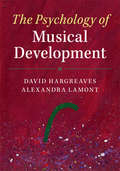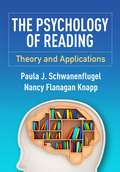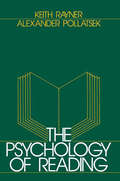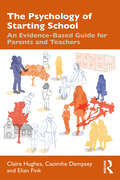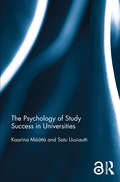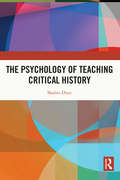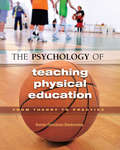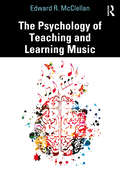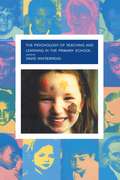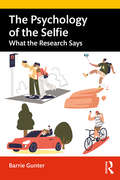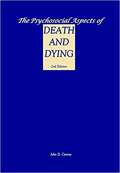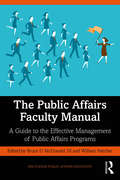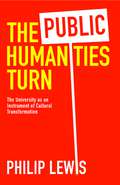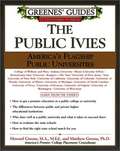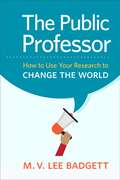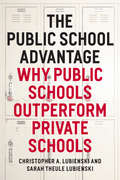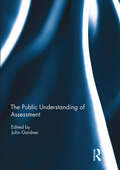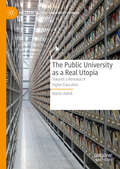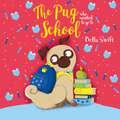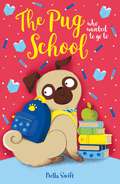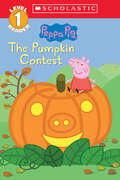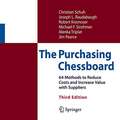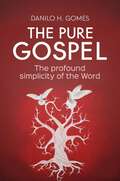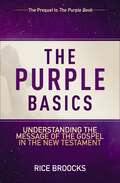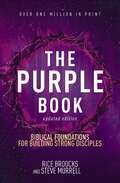- Table View
- List View
The Psychology of Musical Development
by David Hargreaves Alexandra LamontThe Psychology of Musical Development provides an up-to-date and comprehensive account of the latest theory, empirical research and applications in the study of musical development, an important and emerging field of music psychology. After considering how people now engage with music in the digital world, and reviewing current advances in developmental and music psychology, Hargreaves and Lamont compare ten major theoretical approaches in this field - including cognitive stage models and neuroscientific, ecological and social cognitive approaches - and assess how successfully each of these deals with five critical theoretical issues. Individual chapters deal next with cognition, perception and learning; social development; environmental influences on ability, achievement and motivation; identity, personality and lifestyle; affect and emotion; and well-being and health. With an emphasis on practical applications throughout, this book will be essential reading for students and scholars of music psychology, developmental psychology, music education and music therapy.
The Psychology of Reading
by PhD Paula J. Schwanenflugel Nancy Flanagan KnappIncorporating cognitive, neuropsychological, and sociocultural perspectives, this authoritative text explains the psychological processes involved in reading and describes applications for educational practice. The book follows a clear developmental sequence, from the impact of the early family environment through the acquisition of emergent literacy skills and the increasingly complex abilities required for word recognition, reading fluency, vocabulary growth, and text comprehension. Linguistic and cultural factors in individual reading differences are examined, as are psychological dimensions of reading motivation and the personal and societal benefits of reading. Pedagogical Features: *End-of-chapter discussion questions and suggestions for further reading. *Explicit linkages among theory, research, standards (including the Common Core State Standards), and instruction. *Engaging case studies at the beginning of each chapter. *Technology Toolbox features exploring the pros and cons of computer-assisted learning.
The Psychology of Reading: A Special Issue Of The European Journal Of Cognitive Psychology (Oxford Library Of Psychology)
by Keith Rayner Alexander PollatsekThe last 20 years have witnessed a revolution in reading research. Cognitive psychologists, using high-speed computers to aid in the collection and analysis of data, have developed tools that have begun to answer questions that were previously thought unanswerable. These tools allow for a "chronometric," or moment-to-moment, analysis of the reading process. Foremost among them is the use of the record of eye movements to help reveal the underlying perceptual and cognitive processes of reading. This volume provides a coherent framework for the research accomplished on the reading process over the past 15 years. It emphasizes how readers go about extracting information from the printed page and how they comprehend the text.
The Psychology of Starting School: An Evidence-Based Guide for Parents and Teachers
by Claire Hughes Caoimhe Dempsey Elian FinkThe Psychology of Starting School offers a highly accessible, practical guide to cutting-edge research from developmental science to guide parents and professionals through this exciting but sometimes tricky period.Written by expert developmental psychologists, it explores how social and emotional competence emerges within a network of supportive relationships and explains how the transition to school compares with other key transitions for children, for example, becoming a sibling. Addressing the all-important topic of children’s early friendships, it explains how children’s mindreading skills and ability to regulate their feelings and behaviour contribute to a successful school transition. The book offers guidance on topics such as successful home-school links, the impact of starting school on family life and troubleshooting problems for both parents and educators including socialising outside school, children’s fatigue, and establishing positive relationships with other parents at the school gates.Designed to dip in and out, and complete with numerous examples, chapter summaries and top tips for parents and teachers, this book is essential reading for parents, Early Years professionals, SENDCos, health visitors and school nurses, as well as mental health professionals and social workers working with children and families.
The Psychology of Study Success in Universities
by Satu Uusiautti Kaarina MaattaUniversities around the world are under increasing pressure to maintain high levels of graduation and to make study processes as efficient as possible, with teachers and students struggling to meet the expectations placed upon them as a result. The Psychology of Study Success in Universities asks whether it is possible to meet these demands at the same time as protecting the well-being of students. Drawing on an extensive and detailed analysis of study success in universities in Finland, the authors of this thought-provoking work argue that universities should be more concerned with students’ satisfaction and place greater weight on students’ perceptions of the elements that enhance or hinder their success. The book provides a multi-dimensional picture of the student-related and teaching-related factors that promote study success. Giving voice to graduate students, including those enrolled on a PhD, the authors look at the resources that students have at their disposal in order to establish what inspires and motivates the students, what slows them down, and what kinds of experiences students have of successful studies. Määttä and Uusiautti present a wealth of high-quality research showing that good teaching and successful study processes can be secured by immediate and caring interaction, flexible and student-centred teaching and supervision, and interdisciplinary collaboration between teachers. The Psychology of Study Success in Universities is essential reading for academics, researchers and postgraduate students in the fields of education and psychology, as well as for those interested in positive psychology, student well-being and pedagogical studies.
The Psychology of Teaching Critical History
by Shalini DixitThis book delves into the psychology of teaching and learning history. It provides insight into the cognitive processes by which individuals imbibe history and how identity associations can shape our interpretation of histories. It assimilates concepts such as political scenario, curriculum, and pedagogy to give a holistic understanding of the processes involved in the learning of history. It discusses various themes such as the instrumentality of history in nation-building; psychological features and development of Historical Understanding; and the marginalisation of community history. It also provides suggestions on how teachers can reconcile with the developmental stages and multiple versions of history, while teaching tolerance and acceptance without compromising on nation-building commitments. An important contribution, this volume will be indispensable for students and researchers of education, history, psychology, and educational psychology. It will also be of interest to historians, teachers and teacher educators.
The Psychology of Teaching Physical Education: From Theory to Practice
by Bonnie BlankenshipThis book weaves together theory, research, and practical information related to the psychological aspects of physical education. Unlike other exercise/sport psychology books on the market, The Psychology of Teaching Physical Education is written especially for future and practicing physical educators and focuses on the psychological principles and strategies that are most relevant to them. The book covers the important topics of motivation, reinforcement, feedback, modeling, prosocial behaviors/moral development, and self-perception. In each chapter, narratives about real practicing teachers show how they apply the principles and theories of psychology to physical education, and particularly to actual situations that readers are likely to encounter professionally. Each chapter contains three main sections: following an opening scenario in which Blankenship captures the reader's attention with a real-life problem, the author then (1) highlights theories related to the subject matter of the chapter, (2) summarizes the research that has been conducted on the theories and the chapter topic, and (3) gives examples of practical applications of the theory and research to physical education. Throughout the chapter, as the theory, research, and application of the topic are discussed, Blankenship presents possible solutions to the challenge presented in the chapter-opening vignette. The classroom applications and real-world examples are relevant to many different physical education settings, including those at the elementary, middle, and high school levels, in both urban and rural schools representing various geographical regions of the country. These examples bring the theories to life and help readers envision how their own classes will benefit as they apply what theyÃve learned about the psychology of teaching physical education. Key Features of the Book A theory-to-research-to-practice approach. An author whose background in both sport psychology and physical education makes her uniquely qualified to write this book. Chapter-ending application exercises that encourage readers to go beyond rote memorization of concepts and principles to apply what they learned in various specific examples. Sample instructional models and guidelines to enable readers to incorporate concepts discussed in the chapter into their own classes. A comprehensive glossary.
The Psychology of Teaching and Learning Music
by Edward R. McClellanThe Psychology of Teaching and Learning Music introduces readers to the key theoretical principles, concepts, and research findings about learning and how these concepts and principles can be applied in the music classroom. Beginning with an overview of the study of teaching and learning, and moving through applying theory to practice, and reflective practice in the process of personal growth, this text focuses on music learning theories, behavioral approaches, cognitive, social-cognitive development, and constructive views of learning. It includes culture and community, learning differences, motivation, effective curricular design, assessment, and how to create learning environments, illustrated by practical case studies, projects, exercises, and photos. Showing students how to apply the psychology theory and research in practice as music educators, this book provides a valuable resource for undergraduate and graduate music education students and faculty.
The Psychology of Teaching and Learning in the Primary School
by David WhitebreadThis book reviews recent work in psychology which sheds new light on important areas of concern to primary school teachers, providing clear guidelines for good practice. The Psychology of Teaching and Learning in the Primary School details the current controversies regarding the effective teaching of reading and numeracy, how to deal with emotional and behavioural difficulties, the best methods of assessing learning, as well as teaching children to think and develop their creativity.It is a useful text for tutors and students on initial teacher training courses, and to teachers involved in professional development.Each chapter contains an editor's summary, a list of further reading, a full list of references and activities to develop and deepen the readers' understanding in each area. At the same time, the book is written in an accessible style ideal for the non-psychologist and is well illustrated with practical classroom examples.
The Psychology of the Selfie: What the Research Says
by Barrie GunterThe Psychology of the Selfie provides a comprehensive overview and analysis of research on the significance of selfies, offering insights into the topic from a psychological perspective and examining important issues such as body image, self-objectification, mental health and psychological benefits. Selfies are a worldwide phenomenon. Although dismissed by critics as a sign of self-absorbed narcissism, they are also a social currency that maintains and reinforces friendships, a feedback loop for self-identity affirmation, a promotional tool for gaining social influence, and a method for preserving memories of life events. In this book, Barrie Gunter expertly explores the psychological underpinnings of the contemporary global phenomenon of "selfies", from the historical roots and meteoric rise due to technical advancements, to the different personality types of selfie-takers, to social relationships, to group and personal identity. Looking at both the psychological nature and impact of selfies, this book reviews different psychological outcomes for selfie-takers, both positive and negative, and the growth in psychological and physical problems that can sometimes arise. Presenting a comprehensive analysis specifically of selfie behaviour, this book is an essential reference for students and researchers in communications and media, journalism, information studies, psychology and sociology, as well as anyone with a general interest in the phenomenon.
The Psychosocial Aspects of Death and Dying
by John D. Canine“Psychosocial Aspect of Death and Dying, which was originally three years in the making, is a unique text. Written specifically for university-level students studying funeral service, it presents in one volume materials from a variety of sources. Dr. John Canine has successfully complied this material into a logical sequence to enable the reader to better understand death from it psychological and sociological perspectives and, with this knowledge, to become better prepared to confront the issues in his or her own life. This text presents the funeral service practitioner with a compact brief on these issues, and as a result offers a ready reference tool.”
The Public Affairs Faculty Manual: A Guide to the Effective Management of Public Affairs Programs (Routledge Public Affairs Education)
by Bruce D. McDonald III William HatcherWhile public affairs faculty study administration and management techniques, few administrators of public affairs programs receive formal training in the nuts and bolts of academic administration. Even those faculty who come to academia after distinguished careers in managerial positions may not be ready for the very different (and difficult) environment of university administration. The Public Affairs Faculty Manual argues that public affairs as a field needs to ensure that knowledge about administration and management is applied to the running of its academic programs, and brings together major leaders in the discipline to explore key features of academic administration. Many of these leaders have served as Master of Public Administration (MPA) directors, chairs, and deans at the nation’s top public affairs programs. Crucial issues of academic administration discussed include the basics of public affairs programs, models of governance, roles of different administrative leaders, planning and budgeting for programs, navigating the accreditation process, assessing and improving student learning, ensuring social equity and cultural competency, mentoring faculty, developing curriculum, and helping provide service and applied research to community partners. Contributors have served as MPA directors, chairs, and deans at the nation’s topic public affairs programs. Themes running throughout the book’s chapters are examined, and additional resources to help manage public affairs programs are offered. This collection of essays and the strategies within it are designed to encourage faculty to assume positions of leadership in their programs and manage those programs in an effective, efficient, and fair manner. The Public Affairs Faculty Manual is required reading for new, seasoned, and aspiring academic administrators in public administration, public policy, and nonprofit management programs, as well as schools of government.
The Public Humanities Turn: The University As An Instrument Of Cultural Transformation
by Philip LewisThe Public Ivies: America's Flagship Public Universities
by Howard Greene Mathew GreeneProviding students and their parents with a better understanding of the opportunities at America's flagship public universities and the other Ivy League universities, The Public Ivies will help pave the way toward a top-notch college education.
The Public Professor: How to Use Your Research to Change the World
by M. V. BadgettThe work of academics can matter and be influential on a public level, but the path to becoming a public intellectual, influential policy advisor, valued community resource or go-to person on an issue is not one that most scholars are trained for. The Public Professor offers scholars ways to use their ideas, research and knowledge to change the world. The book gives practical strategies for scholars to become more engaged with the public on a variety of fronts: online, in print, at council hearings, even with national legislation. Lee Badgett, a veteran policy analyst and public intellectual with over 25 years of experience connecting cutting edge research with policymakers and the public, offers clear and practical advice to scholars looking to engage with the world outside of academia. She shows scholars how to see the big picture, master communicating with new audiences, and build strategic professional networks. Learn how to find and develop relationships with the people who can take your research and ideas into places scholars rarely go, and who can get you into Congressional hearings, on NPR, or into the pages of The New York Times. Turn your knowledge into clear and compelling messages to use in interviews, blog posts, tweets and op-eds. Written for both new and experienced scholars and drawing on examples and advice from the lives of influential academics, the book provides the skills, resources, and tools to put ideas into action.
The Public School Advantage: Why Public Schools Outperform Private Schools
by Christopher A. Lubienski Sarah Theule LubienskiNearly the whole of America's partisan politics centers on a single question: Can markets solve our social problems? And for years this question has played out ferociously in the debates about how we should educate our children. From the growth of vouchers and charter schools to the implementation of No Child Left Behind, policy makers have increasingly turned to market-based models to help improve our schools, believing that private institutions--because they are competitively driven--are better than public ones. With The Public School Advantage, Christopher A. and Sarah Theule Lubienski offer powerful evidence to undercut this belief, showing that public schools in fact outperform private ones. For decades research showing that students at private schools perform better than students at public ones has been used to promote the benefits of the private sector in education, including vouchers and charter schools--but much of these data are now nearly half a century old. Drawing on two recent, large-scale, and nationally representative databases, the Lubienskis show that any benefit seen in private school performance now is more than explained by demographics. Private schools have higher scores not because they are better institutions but because their students largely come from more privileged backgrounds that offer greater educational support. After correcting for demographics, the Lubienskis go on to show that gains in student achievement at public schools are at least as great and often greater than those at private ones. Even more surprising, they show that the very mechanism that market-based reformers champion--autonomy--may be the crucial factor that prevents private schools from performing better. Alternatively, those practices that these reformers castigate, such as teacher certification and professional reforms of curriculum and instruction, turn out to have a significant effect on school improvement. Despite our politics, we all agree on the fundamental fact: education deserves our utmost care. The Public School Advantage offers exactly that. By examining schools within the diversity of populations in which they actually operate, it provides not ideologies but facts. And the facts say it clearly: education is better off when provided for the public by the public.
The Public Understanding of Assessment
by John GardnerAssessment of educational achievement, whether by traditional examinations or by teachers in schools, attracts considerable public interest, particularly when it is associated with ‘high stakes’ outcomes such as university entry or selection for employment. When the individual’s results do not chime with their or their teachers’ expectations, doubts creep in about the process of assessment that has arrived at this result. However, educational assessment is made up of many layers of complexity, which are not always clear to the general public, including teachers, students, and parents, and which are not easily understood outside of the expert assessment community. These layers may be organized in highly co-dependent relationships that include reliability, validity, human judgment, and errors, and the uses and interpretations of the various types of assessment. No-one could reasonably argue that the principles and complexities of educational assessment should be core learning in public education, but there is a growing realization that trust in the UK assessment system is under some threat as the media and others sensationalize or politicize any problems that arise each year. This book offers the first comprehensive overview of how the general public is considered to perceive and understand a wide variety of aspects of educational assessment, and how this understanding may be improved. This book was originally published as a special issue of the Oxford Review of Education.
The Public University as a Real Utopia: Towards a Renewal of Higher Education (Palgrave Critical University Studies)
by Martin AidnikThis book theorises the public university as a real utopia, drawing upon the work of the American sociologist Erik Olin Wright. The book explores institutional democracy, academic freedom and the curriculum as the real utopian 'constituents' of the public university. In doing so, the author puts forward an argument for the redevelopment of public universities, seeking to do justice to both a radical vision and practical feasibility. This imaginative reconstruction of the university advances debate in the sociology and philosophy of higher education.
The Pug who wanted to go to School (The Pug Who Wanted to... #14)
by Bella SwiftPeggy the pug is ready to be the teacher's pet!It's the end of the summer holidays and the children are heading back to school. But Peggy's best friend, Chloe, is nervous about joining a new class this year. Peggy wishes she could help reassure Chloe. If only she could find a way to go to school too, but dogs aren't allowed . . .Can Peggy teach them all a lesson?(p) 2025 HODDER AND STOUGHTON LIMITED
The Pug who wanted to go to School (The Pug Who Wanted to... #14)
by Bella SwiftPeggy the pug is ready to be the teacher's pet!It's the end of the summer holidays and the children are heading back to school. But Peggy's best friend, Chloe, is nervous about joining a new class this year. Peggy wishes she could help reassure Chloe. If only she could find a way to go to school too, but dogs aren't allowed . . .Can Peggy teach them all a lesson?With adorable black and white illustrations throughout, this heartwarming Peggy the Pug story is perfect for the back to school season.
The Pumpkin Contest (Scholastic Reader, Level 1)
by Meredith RusuIn this Level 1 reader, Grandpa Pig helps Peppa grow the biggest pumpkin ever!Peppa Pig's playgroup is having a pumpkin contest. Grandpa Pig helps Peppa grow a giant pumpkin in his greenhouse -- but the pumpkin is so big, they can't even move it! Will Peppa and her pumpkin make it to the contest in time? This Level 1 reader is based on the hit Nick Jr. TV show!
The Purchasing Chessboard: 64 Methods to Reduce Costs and Increase Value with Suppliers
by James Pearce Christian Schuh Michael F. Strohmer Alenka Triplat Joseph L. Raudabaugh Robert KromoserThe bestselling Purchasing Chessboard® concept, used by hundreds of corporations worldwide to reduce costs and increase value with suppliers, is the topic of this successful professional book now published in its third edition. The 64 squares on the Purchasing Chessboard provide a wealth of methods that can be applied either individually or in combination. And because many of these methods are not customarily used by procurement, the Purchasing Chessboard is also the perfect tool for helping procurement professionals to think and act outside the box and find new solutions. A well tested concept that works across all industries and all categories in any given situation, it is little wonder that business leaders and procurement professionals alike are excited by, and enjoy strategizing around, the Purchasing Chessboard. It encourages greater rigor and creativity and the building of world class capabilities. The explosive growth in analytics and the rise in the number of specialists in procurement practice have taken the application of the Purchasing Chessboard to new levels. This third edition of the book includes a rich assortment of case examples to reflect the lessons learned across geographies and industries. Some of the chapters have also been updated to accurately reflect these trends.
The Pure Gospel: The profound simplicity of the Word
by Danilo H. GomesDo you truly know the gospel, or only what you've been told? Have you been told the whole truth? Today, we have a surprising number of people who classify themselves as Christians, but at the same time, they defend absurd ideas that are completely unbiblical, simply because they have heard the gospel without consulting the original source: the Holy Bible. Could you be one of these people? Are you sure? We urgently need to return to the pure gospel, without human additions. The PURE GOSPEL presents a comprehensive view of the gospel entirely based on the Holy Scriptures, without any questionable or dubious additions, in order to root the believer back to the source of wisdom. It narrates the journey of fallen humanity up to Christ, always based on what the Bible says, letter by letter. Discover the gospel in a way you may have never known before, from creation, through salvation, to the obligations of the Christian.
The Purple Basics: Understanding the Message of the Gospel in the New Testament
by Rice BroocksThe Purple Basics is the "prequel" to The Purple Book—the bestselling Bible study covering biblical foundations. The focus of this study is what has been called "The Gospel Creed":The gospel is the good news that God became man in Jesus Christ. He lived the life we should have lived and died the death we should have died . . . in our place. Three days later He rose from the dead, proving He is the Son of God and offering the gift of salvation and forgiveness of sins to anyone who repents and believes in Him.Millions have attended church and studied Scripture yet lament they lack confidence to share the gospel. This study will give you both the confidence and clarity to communicate this life-changing message with others. Christ's death and resurrection provide the truth that the gospel is "public truth"—that Jesus actually lived, died, and rose again from the grave.You can spend a lifetime studying Scripture and barely scratch the surface of God's knowledge. Yet He has communicated enough for you to know that He exists and how you can enter into a relationship with Him.Each chapter includes:Introductions to the Gospel CreedBible study questions to understand the gospelGospel summaries to master the message
The Purple Book, Updated Edition: Biblical Foundations for Building Strong Disciples
by Steve Murrell Rice BroocksIn today's uncertain world, storms will arise that test your faith in a loving heavenly Father. At times, the winds and waves of the world's deceptions will roll in and seek to erode your confidence in God. Without a firm foundation in the truth of God's Word, you may be tempted to go off course and accept less than God's best for you. However, when you hear Jesus' words, receive them, and put them into practice, you will construct a life the torrents cannot shake, "because it was well built" (Luke 6:48).The Purple Book will help you understand foundational truths that God wants you to hear on topics such as sin, salvation, spiritual gifts, prayer, worship, generosity, and evangelism. It will show you how the Bible is "God-breathed and is useful for teaching, rebuking, correcting and training in righteousness" (2 Timothy 3:16). It will help you understand that the faith you hold has true power to change lives and transform nations. It will give you a solid foundation the enemy cannot dismantle—and a heart shaped by knowledge of God's Word.
